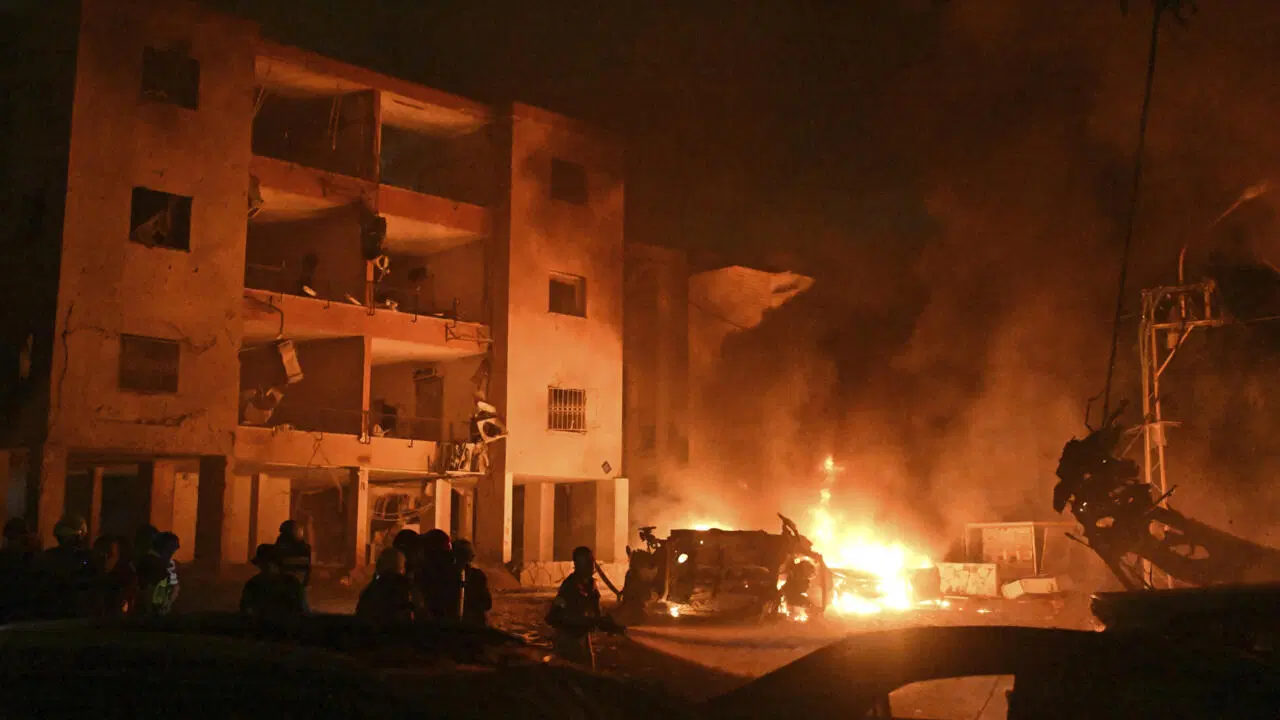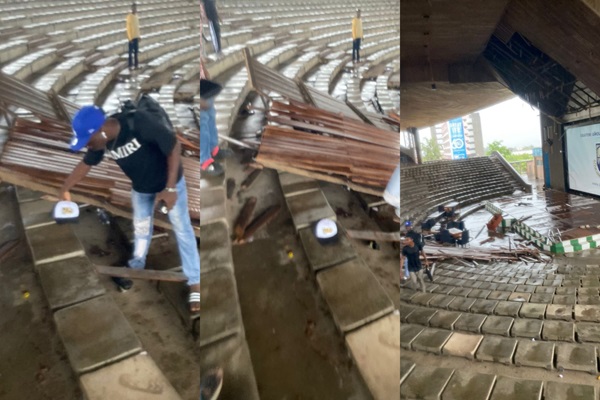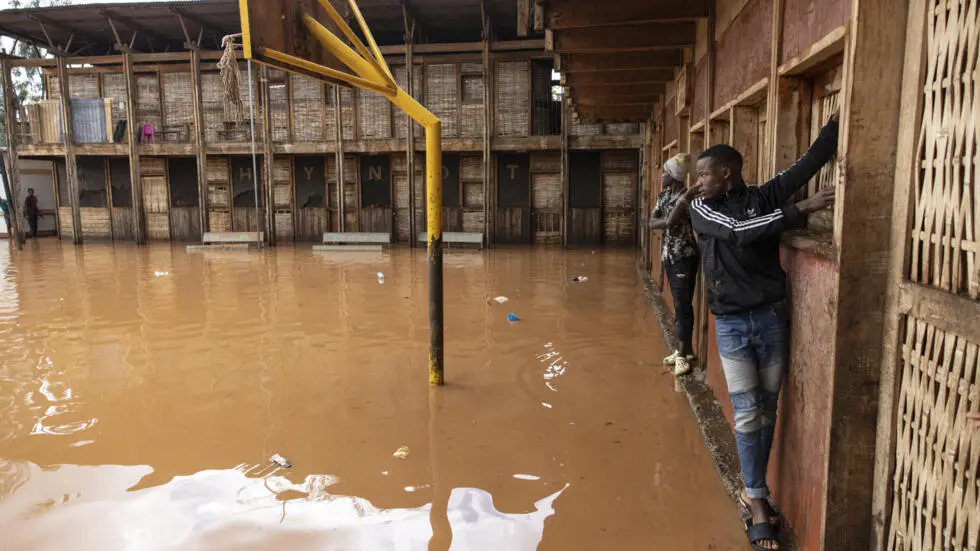In a dramatic development that could mark a turning point in the ongoing war, Iran has signaled its willingness to consider a ceasefire with Israel—even as Israeli warplanes intensified their assault on Tehran, targeting key infrastructure including the headquarters of the country’s state television.
The bombing of the Islamic Republic of Iran Broadcasting (IRIB) complex sent shockwaves across the Iranian capital on Monday. Witnesses recounted scenes of terror and destruction.
“All we could see was smoke and broken glass,” said a resident near the scene. “People were running, children were screaming. We thought it was the end.”
The strike, part of Israel’s escalating “Operation Rising Lion,” knocked national broadcasts off air for several hours and has been viewed as a symbolic blow to Iran’s regime.
The bombardments have sparked mass panic in Tehran, triggering the evacuation of over 330,000 residents, with emergency shelters filled to capacity and fuel stations overwhelmed. Authorities have declared several “red zones” around nuclear and military installations.
Diplomatic Shift Amid Heavy Losses
Despite the intensifying bombardment, Iranian officials have quietly opened diplomatic channels seeking a truce, reportedly reaching out to Qatar, Saudi Arabia, and Oman to mediate. Sources say Tehran is proposing an immediate ceasefire, a temporary freeze on uranium enrichment, expanded IAEA monitoring, and a halt to ballistic missile testing.
However, Iran’s offer is conditional: the United States must stay out of the battlefield. While seeking dialogue, Tehran remains defiant, insisting its sovereignty will not be compromised by military pressure.
Inside Israel, Prime Minister Benjamin Netanyahu rejected any talk of halting operations.
“This is not the time for half-measures. We will finish what we started,” Netanyahu said during a televised briefing, vowing to neutralize Iran’s nuclear and missile threats.
Global Markets React
The news of Iran’s diplomatic overture sent ripples through global markets. Oil prices, which had been surging on fears of regional disruption, fell by 4% on Monday afternoon as traders responded to signs of possible de-escalation.
“The prospect of a ceasefire—however tentative—has calmed fears of prolonged disruption to oil supply routes through the Strait of Hormuz,” said a London-based commodities analyst.
Still, the situation remains volatile, with no guarantees of a breakthrough.
Trump Weighs In: “We Risk World War III”
Former U.S. President Donald Trump, who remains an influential figure in the crisis, issued a stern warning against further escalation.
“If this continues, we risk World War III,” Trump said, adding that he had recently vetoed an Israeli plan to assassinate Iran’s Supreme Leader, Ayatollah Ali Khamenei, fearing it would ignite a full-scale regional war.
According to U.S. officials, Trump has also declined Israeli appeals for direct military assistance, opting instead to push for a negotiated resolution.
A War of Attrition
The war, now in its fourth day, began after Iran allegedly launched a cyberattack on Israel’s nuclear command infrastructure. Israel retaliated swiftly with aerial strikes on Iranian military assets, including missile stockpiles and nuclear sites.
Since then, Iran has fired over 150 missiles at Israeli cities such as Tel Aviv and Haifa. While most were intercepted by Israel’s Iron Dome and David’s Sling defense systems, some have landed, causing civilian casualties and widespread damage.
So far, the death toll has climbed to 224 Iranians and 24 Israelis, with hundreds more injured on both sides. Hospitals in both nations are operating beyond capacity as air raid sirens continue to ring out in major cities.
Diplomatic Roadmap in Motion
Amid the chaos, behind-the-scenes diplomacy is gaining momentum. Oman is reportedly drafting a peace proposal that includes:
-
A phased withdrawal of forces,
-
Mutual de-escalation commitments,
-
And the deployment of a U.N.-backed multinational monitoring team.
The United Nations and European Union have welcomed Iran’s overture, with U.N. Secretary-General António Guterres calling for “an immediate and unconditional ceasefire to prevent further civilian suffering.”
Countdown to Peace or Wider War?
Despite the faint hope of a diplomatic breakthrough, the situation remains fragile. Israeli jets continue to patrol Iranian airspace, and Tehran has yet to halt its retaliatory missile strikes.
As both military pressure and diplomatic engagement accelerate in parallel, the next 48 hours could determine the fate of the region—either paving the way for peace or plunging the Middle East into a deeper, deadlier conflict.



